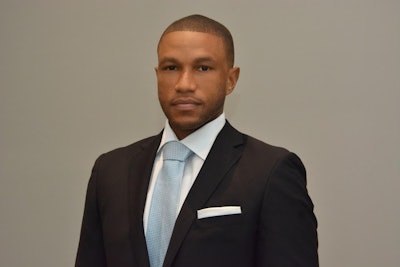Miami Dade College (MDC) Provost Dr. Malou Harrison has taken aggressive and direct action to address gaps in higher education access and success for Black students through her spearheading of the Rising Black Scholars program. According to a press release from the college, the program “will provide Black students graduating from high school in 2021 with free tuition for up to two years of study, creating a coherent academic and career pathway leading to an associate degree and increased earning potential.”
 Dr. Marcus Bright
Dr. Marcus BrightThe initiative is an example of how individuals like Dr. Harrison can help to bolster institutional belief in a population of students who have historically been the most underrepresented in higher education institutions. Before opportunity and achievement gaps are closed, the belief gap must be addressed. This involves both the students’ belief in their own ability and the institution’s belief in the students.
Dr. Harrison’s unapologetic effort to open up unprecedented doors of opportunity should be applauded. It takes courage to take such a stand and it is a focused initiative that is much needed. It is a move that indicates that Black students are wanted and valued at the institution and it is in alignment with MDC’s continuing efforts to better build a culture that supports them.
This access and outreach effort has the potential to build a better connection among students by cultivating peer bonding and a supportive ecosystem. Belief, care, and support in tandem with the tangible financial benefits of the program form the elements of an initiative that will not just be about a transactional exchange, but rather a transformational experience. The program is designed to go beyond the provision of tuition, books, and a laptop and provide a holistic array of support services that includes opportunities to gain stackable credentials, career exploration guidance, academic advisement, internship opportunities, and resume assistance. These proactive strategies will help to prepare students for post-college success.
The services that accompany the program will be specifically targeted to meet the unique needs of these scholars who have a distinct set of challenges and opportunities. There is power in precision. The late actor Bruce Lee once said that, “I fear not that man who has practiced 10,000 kicks once, but I fear the man who has practiced one kick 10,000 times.” Specific challenges require specific responses. If this population of students can be lifted, then the entire student body will be lifted.
The bold moves that have been made by Dr. Harrison and supported by the institution are the kind that are needed during this time of unprecedented challenges. It has given students a new opportunity to fulfill their dreams and it can be a launching for other innovative approaches like the expansion of peer-to-peer mentorship, academic enhancement, socioemotional development, and civic engagement.
This core group of scholars can encourage each other and motivate other students to strive for academic success and persist through degree attainment. They will be well positioned to be on the leading edge and prepared to maximize their ability. Partnerships with similarly aligned K-12 programs can form a pipeline that will increase the level of college and career preparation for everyone involved.
The Rising Black Scholars program is not a “cure all” for the underrepresentation of Black students that persists at institutions of higher education, but it is a giant leap forward both from a resource and commitment standpoint. Dr. Harrison should be saluted for using her position power to provide opportunities to a population of students who are too often dismissed and disregarded. A new paradigm of a more equitable playing field is on the horizon at Miami Dade College and other institutions that have launched similar initiatives.
Dr. Marcus Bright is a scholar and educational administrator.
















